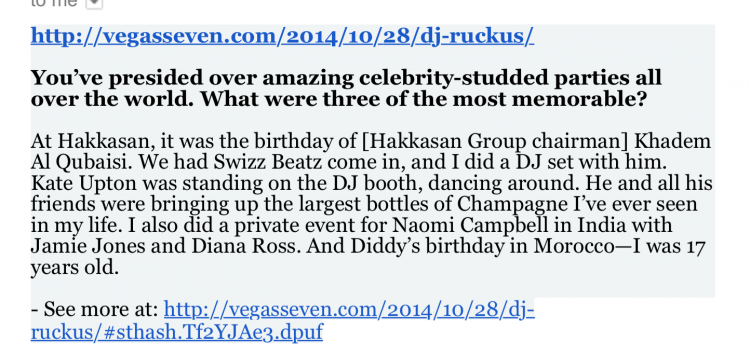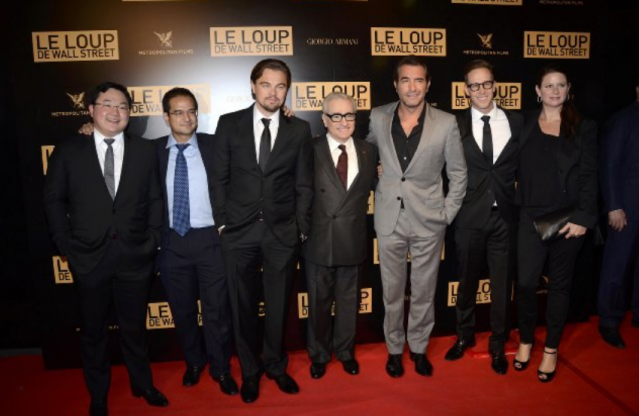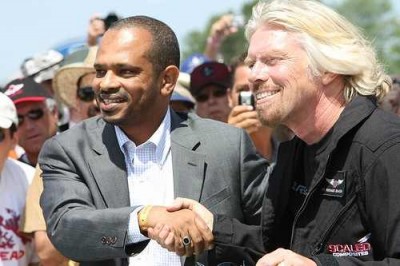
Following persistent probing from Sarawak Report the Prime Minister’s son Riza Aziz announced last year that the funding for his film company’s US$100 million dollar production, The Wolf of Wall Street, starring Leonardo DiCaprio, had come from an individual – Mohamed al-Husseiny, the then Chief Executive of the Abu Dhabi wealth fund Aabar.
It was perhaps the first public acknowledgement that the boys from Aabar were signing cheques that went way above the pay-grade even of a sovereign wealth fund manager.
And it also flashed a red alert over a blatant conflict of interest. Riza’s step-dad, Najib Razak, was in the middle of negotiating a series of extremely shadowy, yet eye-wateringly huge, bond issues for 1MDB in tandem with the very Aabar fund that al Husseiny was managing.
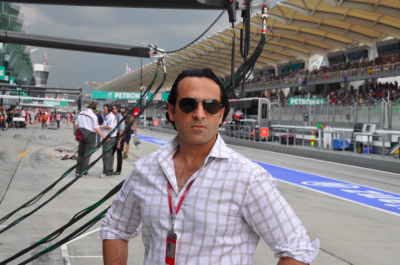
What, we asked, was going on?
Now, cases being fought in the courts in London and elsewhere, are throwing further light on the activities of the ex-managers of Aabar, whose connections with 1MDB and the Malaysian businessman Jho Low have already been repeatedly queried by this blog.
The characters in question are al-Husseiny himself and his once powerful boss, ex-Aabar Chairman Khadem al Qubaisi, who have both now been sacked by Aabar and its parent company, Abu Dhabi’s International Petroleum Investment Company (IPIC), after a series of major irregularities started to come to light earlier this year following our investigations.
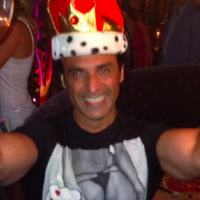
Together with their pal Jho Low, they have put the wasteful escapades of DiCaprio’s own film character Jordon Belfort, into the shade several times over.
It is in fact ironic that DiCaprio has become best friends with these wealth fund party-boys behind his movie, because these have turned out to be the REAL Wolves of Wall Street surpassing new records for excess.
On the occasion, for example, of Leonardo’s recent 40th birthday bash, US rap singer O. T. Genesis (below) went public with his account of the legendary partying of these big-spenders, who have boggled the in-crowds of Hollywood, Las Vegas and San Tropez:
!["I have never seen anything like it.. never ever!"[US rap star O T Genesis talks about the money spent by the Wolf Boys at Leo's birthday]](/wp-content/uploads/imgcache/2015/09/pImg_b9e9b0ad5ec6d4bab262b865167d20d0.png)
“This other guy comes [on stage] he is from er er er … Malaysia. He comes in and he’s like 500 thousand [dollars], so he spent 500 thousand on these big-arse bottles, like $50,000 each Ace of Spades magnum bottle, something like that. So he bought a lot of those, big-arse bottles, whatever. I’m like what!? This is not for real what I am seeing! I’m going like this is crazy! I’ve never seen anything like that…. Then this [Malaysian] guy comes with some African guy and they go halves and spend a million! We have a million dollars – two guys, $500 each. We have a million dollars on bottles and they announced it on the mike…. I am like this is some real rich shit !” [describing Leo’s birthday party November 2014]

Court Case vs Aabar & Tchenguiz
Further information on the background to the ostentatious wealth of this circle around Jho Low, Khadem al Qubaisi and their pals Riza and Leo is now leaking out and Sarawak Report has obtained details related to a long-running court battle involving the fund.
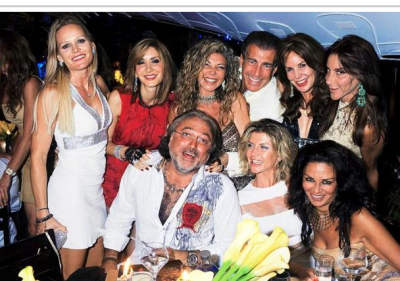
The cases concern two of Britain’s most colourful property moguls, Glenn Maud and Robert Tchenguiz, who have been wrestling for years for control of Europe’s most expensive real estate asset, Madrid’s Banco Santander HQ complex, worth a staggering 3 billion euros.
Maud owns the property, but in 2010 Tchenguiz linked up in a joint venture with Aabar to buy up a Euro 200 million ‘junior’ loan on the building owed to Royal Bank of Scotland. The strategy was to try and use this lever to force Maud and his partners into bankruptcy in order to acquire the building.
The two have taken each other to court. According to court papers Maud claims his rival is dishonestly obstructing him from settling the debt.
There are also questions about whether the UK government-owned RBS bank, which sold this loan, carried out any due diligence as to the true identity of the consortium which bought the interest.
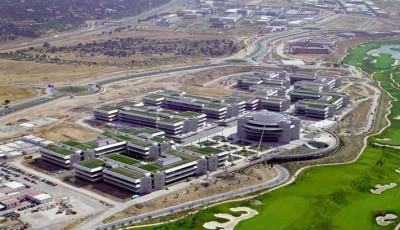
This relates to evidence that the Aabar partnership with Tchengiuz was a dishonest ploy, which was designed to hide a bid by Khadem Al Qubaisi to personally make money from the deal using the secret backing of the fund he was supposed to be managing.
It appears to reflect a pattern in the way Al Qubaisi ran the loss-making Abi Dhabi sovereign fund, where he looks to have realised millions for himself instead of Aabar, which he was supposed to be running for the benefit of Abu Dhabi.
The matter highlights the questions over irregularities surrounding further Aabar deals, including those with 1MDB,
Edgeworth Capital – a Luxembourg private company
The Santander building controversy centres around a Luxembourg company named Edgeworth Capital Luxembourg S.a.r.l., which had jointly bought the loan together with Aabar from RBS in 2010.
On a 50/50 basis Aabar and Edgeworth purchased Maud’s loan from RBS for 200 million euros. It was a structure which enabled them to avoid heavy taxes that accrued in Spain on any transaction that involved a transfer of more than a 50% of the shares of a real estate asset.
Edgeworth purported to be solely owned by Robert Tchenguiz, with minority shareholdings belonging to other third party businessmen.
However, in fact the majority of the shares in this company were secretly owned by Al Qubaisi.
Furthermore, the 100 million euros, which had been borrowed by Edgeworth to buy its share of the investment, had been ultimately backed by a guarantee from Aabar itself in an arrangement with Citibank.
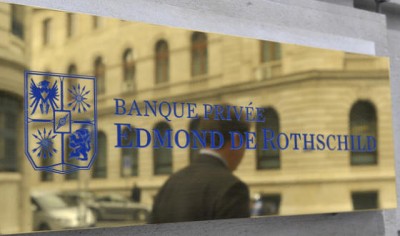
This was a clear abuse of Al Qubaisi’s role as Chairman of Aabar, in that he was using the fund to give himself a personal controlling interest in this lucrative if dubious corporate raiding venture.
Sarawak Report has further evidence that the trustee for Edgeworth was none other than al Qubaisi’s own private bank in Luxembourg, Edmond de Rothschild, managed by a close contact of Khadem’s, Marc Ambroisien (we have already revealed the bank’s involvement in the $20 million payment by Jho Low’s Good Star Ltd to Al Qubaisi).
A person who has been following the case told Sarawak Report that the main question now is whether RBS knew about these arrangements when it sold the loan and agreed to continue to act as facility agent and custodian for Edgeworth?
If not, why not?
“Al Qubaisi with the conivance of Tchenguiz engineered a situation where he used Aabar’s financing to fund the entirety of Edgeworth’s euro 100 million acquisition of 50% of the loan from RBS. In a mutually beneficial conspiracy, Tchenguiz posed as the owner of Edgeworth whereas actually al-Quabaisi was secretly the true majority shareholder in clear abuse of his position as Chairman of Aabar.
This arrangement not only disguised Al-Qubaisi’s secret personal ownership, funded entirely by Aabar, of a material interest in this transaction but also provided the platform in due course to fraudulently persuade the Spanish tax authorities that the parties were not “connected” for tax purposes, thereby avoiding enormous tax liabilities” the informant told Sarawak Report.
This was despite both Aabar and Edgeworth sharing the same lawyer, David Ereira a partner at Linklaters in London, who negotiated the buy out from RBS on behalf of both parties, Sarawak Report has established.
The issue reflects far wider concerns about Aabar and its connections also to 1MDB, where at least US$1.4 billion have gone missing from joint power purchase deals in 2012.
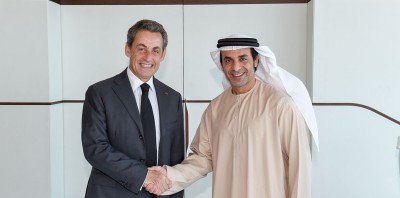
Added to that another US1.4 billion evaporated from a later US$3 billion dollar loan, raised as part of a ‘strategic partnership’ with Aabar in 2013.
And in a further development last week the Wall Street Journal identified a further US$993 million that has also been spotted as unaccounted for – a total of some US$4 billion gone missing from the 1MDB Aabar joint ventures!
Last year, Sarawak Report has learnt, the IPIC lawyer and then board member James Sullivan attempted to regularise the situation at Edgeworth as questions started being asked about al Qubaisi’s deals involving Aabar.
Ownership of the company was put fully into Tchenguiz’s name, concealing the fact that originally some 80% of the shares had belonged to Al Qubaisi.
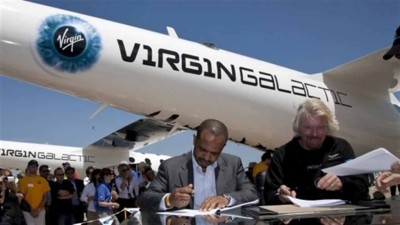
Sullivan left Aabar in April, resigning his positions at IPIC and Falcon Bank at the same time that Al Qubaisi was sacked from all his positions on the orders of Sheik Khalifa, the President of Abu Dhabi and initially expelled from the Kingdom.
Both men nevertheless continue as directors of the private companies belonging to their former IPIC boss, Sheikh Mansour, who is a younger brother of the Emir of Abu Dhabi and the owner of Manchester City Football Club.
It means they remain powerful businessmen and major investors in Europe and the United States.
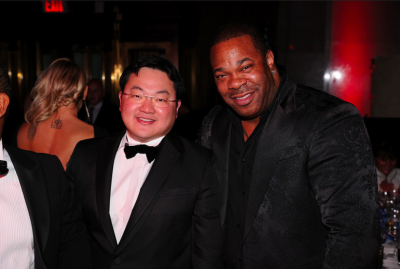
For example, Qubaisi and Sullivan remain as the key figures in the largest chain of restaurants and nightclubs in the United States, Hakkasan, which is ultimately based in London.
The pair also manage major property and other assets in the United States, France and Europe allegedly on behalf of Sheik Mansour, but clearly to the considerable benefit also of the ostentatious spender Khadem himself.
Aabar, meanwhile, is believed to be attempting to regularise affairs in the aftermath of the tangled web of interests set up by Al Qubaisi and his night-clubbing circle of business partners.

Malaysian connections
The growing questions about Khadem al Qubaisi and his circle of social and business contacts are key factors now as Abu Dhabi consider their final decisions regarding their commitments to 1MDB.
The evidence is strong that al Qubaisi’s management of the fund was extensively corrupt and that this extended to the highly questionable deals between Aabar and 1MDB.
The appearance of Robert Tchenguiz in this latest London court case also resonates with other Malaysian and Jho Low related deals, already highlighted by Sarawak Report.
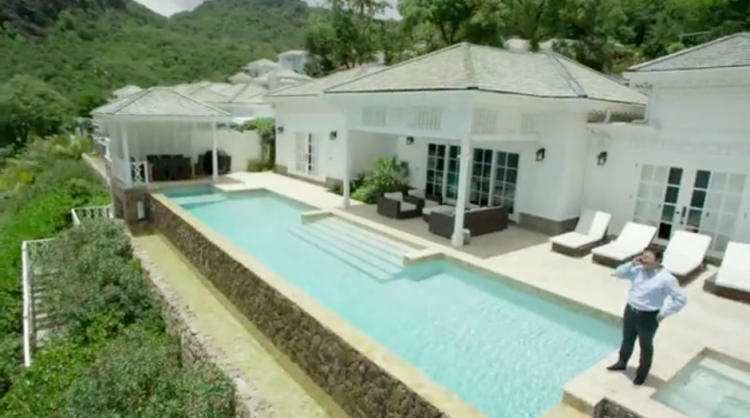
The same developer was cited as being involved alongside Jho Low and Aabar in bidding for London’s top Claridge’s Hotel group in 2011, for example, according to documents in another prominent UK court battle.
Further documents published by Sarawak Report show Tcheguiz was also in direct collaboration with Jho Low in a bid described as being orchestrated by Prime Minister Najib Razak to make a US$500 million quick flip profit using collaboration with Al Qubaisi’s Aabar fund to buy up a chunk in the Malaysian bank RHB.
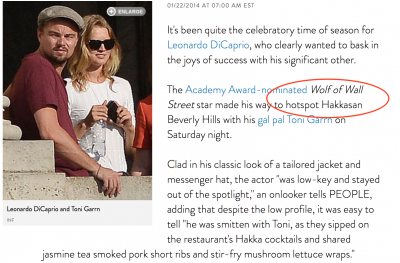
The plan, according to emails sent between Jho Low and Robert Tchenguiz, was to then squeeze CIMB and Maybank to pay extra for these cornered shares during their planned subsequent merger of the three banks.
In the event the Prime Minister’s brother, who chaired CIMB pulled out of the merger rather than see his shareholders held to ransom on the insider trade, which left Aabar holding an expensive pup.
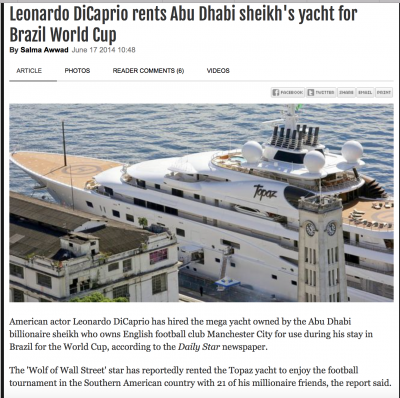
The failure of this ring of gamblers with Aabar’s money to pull off the CIMB deal has undoubtedly contributed to the abysmal performance of the fund, which Abu Dhabi insiders say has now depleted from US70 billion to under US$15 billion under Al-Qubaisi’s management.
Whether Aabar, now that it has sacked Al Qubaisi and his right hand man Mohamed Al Husseiny, who orchestrated the June bail out agreement with 1MDB, will continue to ratify that deal to prevent the bankruptcy of Malaysia’s beleaguered fund remains to be seen.
Without doubt IPIC will be throwing good money after bad if it decides to try and achieve a cover-up of this series of scandals, which now looks set to come under the scrutiny in the courts.
